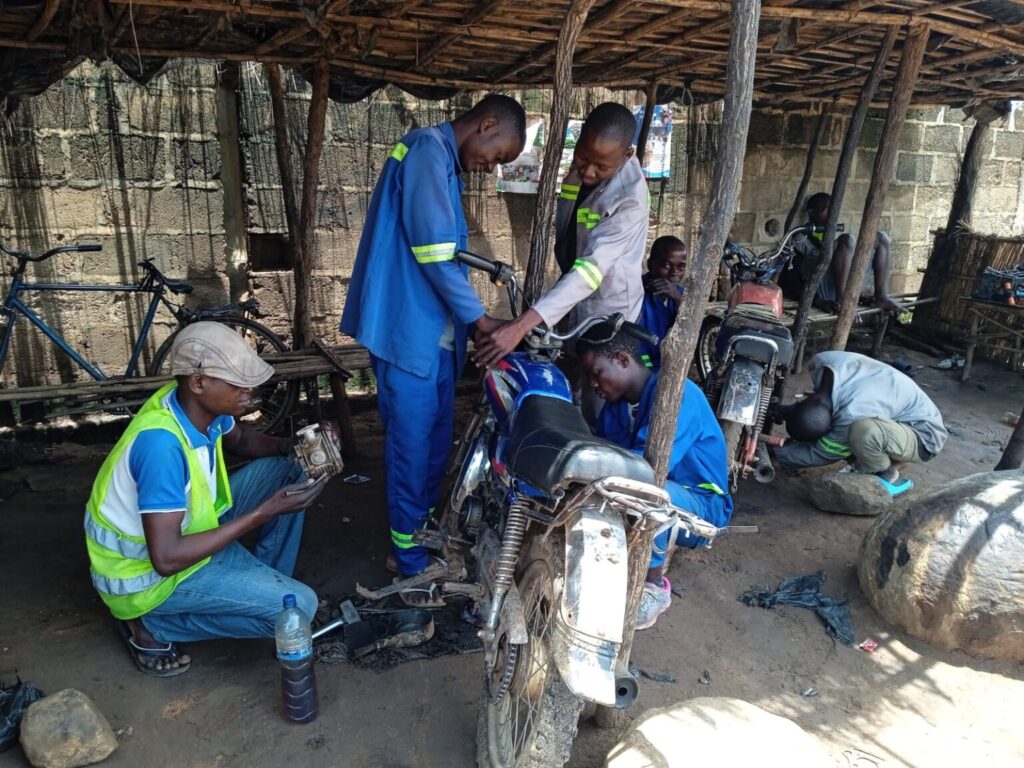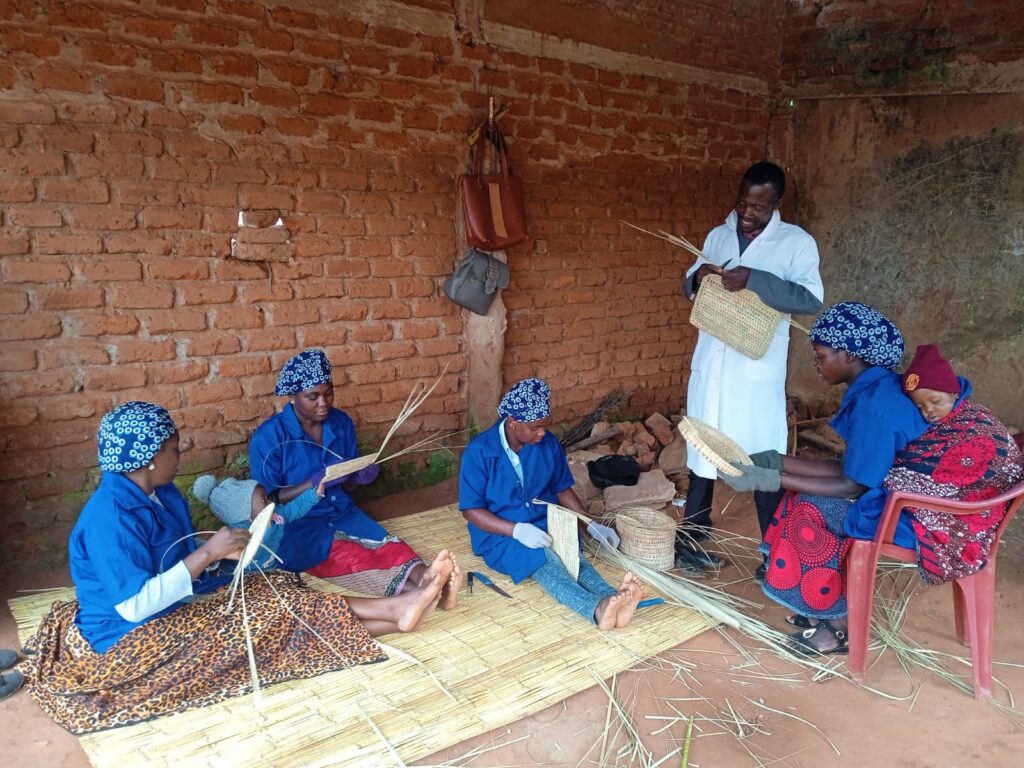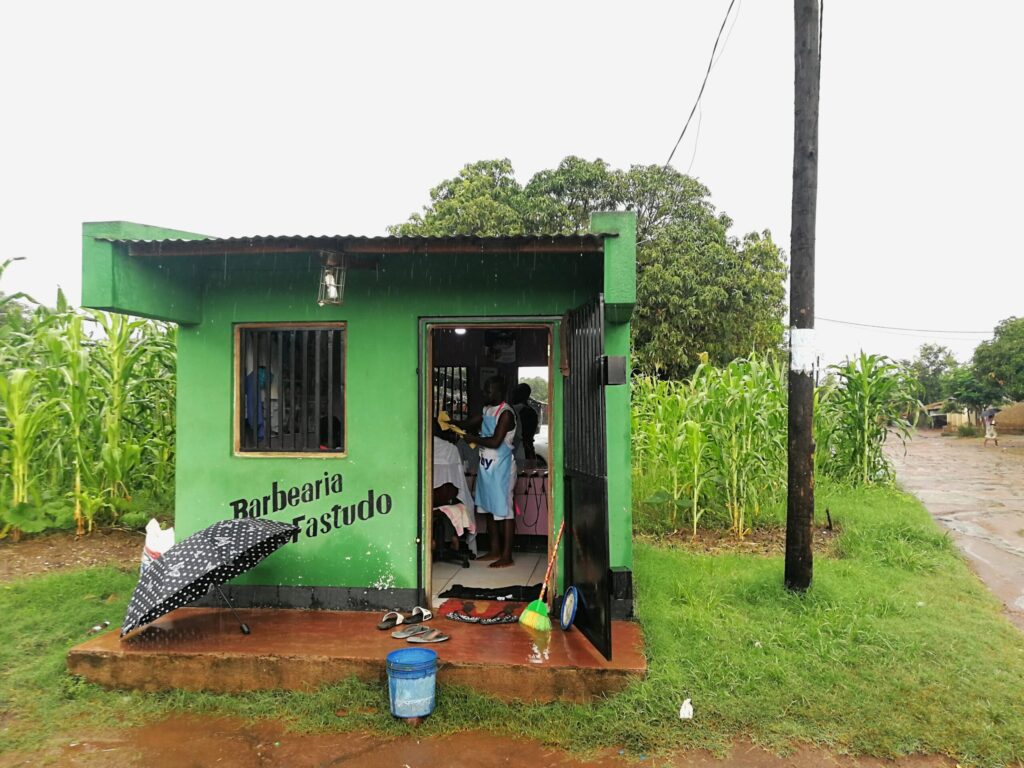ETH Master student Maja Schoch travelled to Mozambique for a six-month internship with the Swiss NGO Helvetas, where she worked on a project that aims to combat youth unemployment through vocational training.
Uncovering the Realities of Youth Unemployment in Northern Mozambique
Maja Schoch, 13 April 2023
Compared to Switzerland, Mozambique has a very young population; the average age of people is 17.6 years, while in Switzerland it is 42.4 years. Nevertheless, youth unemployment is a problem in Mozambique, especially for young people with little schooling. Mozambique is also one of the poorest countries in the world. To address the issue of youth unemployment, the NGO Helvetas Swiss Intercooperation has launched the Vocational Skills Development (VSD) project HOJE, which aims to improve the skills of disadvantaged youth, integrate them into the labour market and improve their income and living conditions.
At the end of August 2022, I journeyed to Nampula, a city in the North of Mozambique, and joined the HOJE project as an intern to help evaluate the project. Through a survey of graduates and training providers, collected prior to my arrival, I gained insight into the quantitative outcomes of the project.
An initial challenge for me was my lack of Portuguese language skills. Since my colleagues didn’t speak English, I struggled to communicate effectively, using a mix of French, a little Spanish, and a bit of Italian to produce an output that resembled Portuguese. Learning Portuguese quickly became the only option to integrate myself and feel at home in this faraway place.
After a few weeks and with newfound language skills, I travelled with my project team to neighbouring provinces where we visited young people during or after their training. This allowed me to connect the survey information with real-world issues. To evaluate the project holistically, it was essential to understand the determinants of the environment and the factors shaping the daily lives of the project participants. Daily energy cuts for up to many hours per day, heavy rain, and consequent damaged or inaccessible roads were only a few issues that shaped everyday life.
As the second half of my journey unfolded, I gradually acclimatized to the region and felt more at home. My Portuguese improved and I found myself capable of communicating more effectively and gaining a better understanding of the project and the culture of northern Mozambique. I cherished random encounters with people and made friends with the women who sold mangoes, the guy who sold coconuts on the street, and the guards next to the Helvetas office.
As part of my internship, I was able to complement the quantitative survey results by conducting interviews with project graduates. The evaluation of the project showed that some graduates had achieved remarkable success, earning a livelihood by selling handmade clothing and accessories. Others, however, struggled to utilize their newly acquired skills due to the lack of necessary resources to start a business. What surprised me the most was that despite women being much more prone to unemployment even after training, they were more financially successful if they achieved being self-employed post-training.
Finally, the time had come to say goodbye. Leaving friends who had become family was difficult. This experience not only provided valuable work experience but also offered unique adventures and introduced me to incredible people. Witnessing both the beauty and challenges of Mozambique has inspired me to contribute to its development in the future. Although I looked forward to being reunited with loved ones in Switzerland, I eagerly anticipate returning to the relaxed atmosphere and visiting the amazing friends I met in Mozambique.
At the end of August 2022, I journeyed to Nampula, a city in the North of Mozambique, and joined the HOJE project as an intern to help evaluate the project. Through a survey of graduates and training providers, collected prior to my arrival, I gained insight into the quantitative outcomes of the project.
An initial challenge for me was my lack of Portuguese language skills. Since my colleagues didn’t speak English, I struggled to communicate effectively, using a mix of French, a little Spanish, and a bit of Italian to produce an output that resembled Portuguese. Learning Portuguese quickly became the only option to integrate myself and feel at home in this faraway place.
After a few weeks and with newfound language skills, I travelled with my project team to neighbouring provinces where we visited young people during or after their training. This allowed me to connect the survey information with real-world issues. To evaluate the project holistically, it was essential to understand the determinants of the environment and the factors shaping the daily lives of the project participants. Daily energy cuts for up to many hours per day, heavy rain, and consequent damaged or inaccessible roads were only a few issues that shaped everyday life.
As the second half of my journey unfolded, I gradually acclimatized to the region and felt more at home. My Portuguese improved and I found myself capable of communicating more effectively and gaining a better understanding of the project and the culture of northern Mozambique. I cherished random encounters with people and made friends with the women who sold mangoes, the guy who sold coconuts on the street, and the guards next to the Helvetas office.
As part of my internship, I was able to complement the quantitative survey results by conducting interviews with project graduates. The evaluation of the project showed that some graduates had achieved remarkable success, earning a livelihood by selling handmade clothing and accessories. Others, however, struggled to utilize their newly acquired skills due to the lack of necessary resources to start a business. What surprised me the most was that despite women being much more prone to unemployment even after training, they were more financially successful if they achieved being self-employed post-training.
Finally, the time had come to say goodbye. Leaving friends who had become family was difficult. This experience not only provided valuable work experience but also offered unique adventures and introduced me to incredible people. Witnessing both the beauty and challenges of Mozambique has inspired me to contribute to its development in the future. Although I looked forward to being reunited with loved ones in Switzerland, I eagerly anticipate returning to the relaxed atmosphere and visiting the amazing friends I met in Mozambique.

Lunch in the office. Photo credit: Maja Schoch.
About the Author

Maja Schoch
Maja is a last year student in Comparative and International studies at ETH Zurich.





